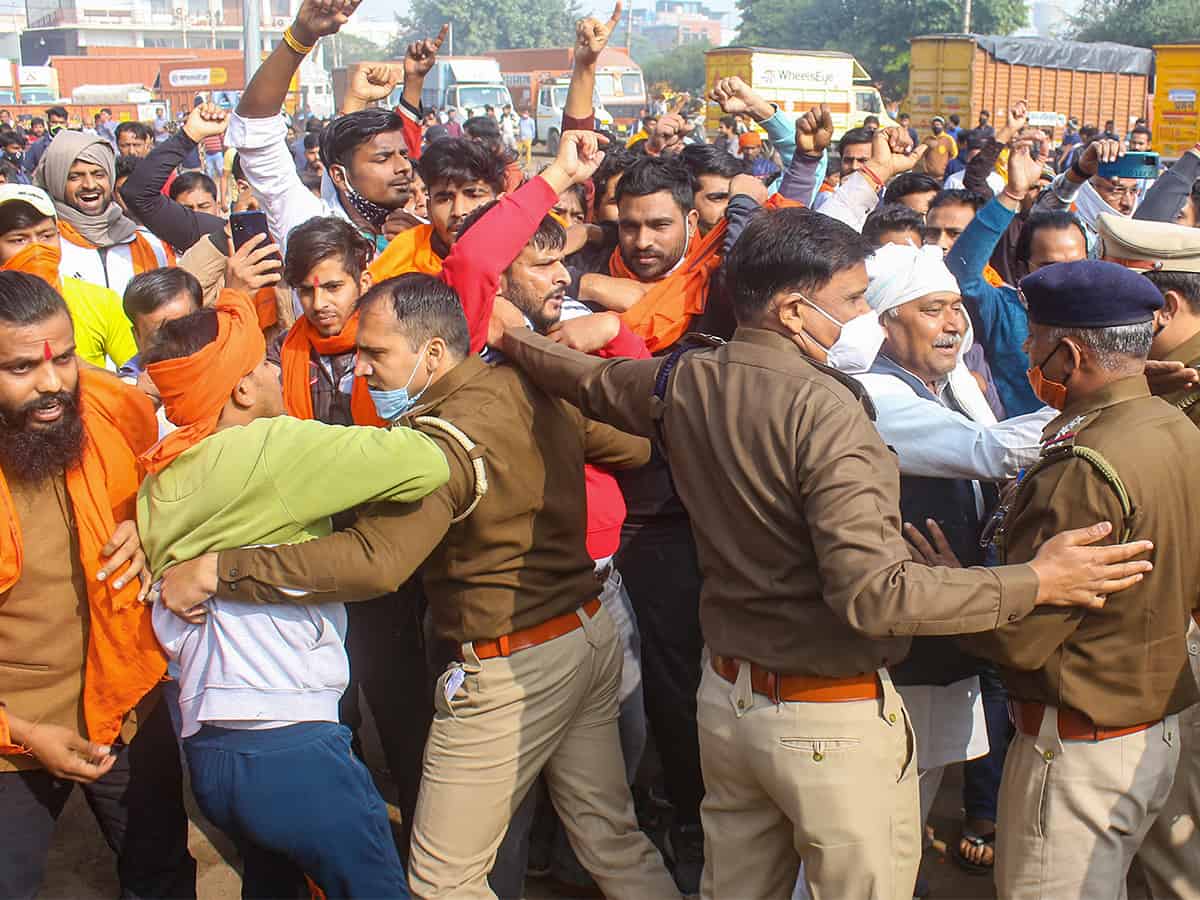In connection with the disruption of namaz in Gurugram, there are now indicators that the Hindu right had planned well in advance to harass Muslims and prevent them from offering prayers.
In what seems to have become a weekly menace, on December 3 a group of Muslims offering namaz at a designated ground in Gurugram was disturbed by the right-wing youth who vowed to stop them from praying.
Trucks were parked in the ground located in sector 37, as the group prepared to pray there were loud chants of ”Jai Shree Ram” by the right-wing activists. In a video that went viral on social media, Dinesh Bharti, the founder of Bharat Mata Vahini is seen heckling a cleric. He can be heard saying “Namaaz yahaan Nahi Hoga” (there won’t be Namaaz here).
A few WhatsApp messages suggest that Bharti’s antics on Friday were planned in advance. It is to be noted that Haji Shahzah Khan, who led another group of Muslims in solidarity with those being heckled, was approached violently by Bharti.
Whatsapp messages and pre-planned protests
Friday’s protest was well-planned, with Bharti circulating a WhatsApp message to convey his intentions of disrupting the namaz at the Sector 37 ground and mobilising support for the same. The Print gained access to these messages, which revealed the time and venue of the protest.
One of his messages read, “Jis bharat mata ki god mein janm liya hain, uska karz utarane ka samay aa gaya hain,” (It is time to pay back the country in whose lap you were born.)
According to the Gurugram police, Bharti was arrested following the ruckus on Friday, he now has to be presented in court to apply for bail. Speaking of Bharti’s arrest, Gurugram police PRO said, “Bharti has been arrested for the fourth time and is in police custody for now. We have charged him with IPC sections 107 (instigation) and 151 (disturbance of public peace), as preventive action. Although these charges are bailable in nature we refused to accept the bail and have sent the matter to the district’s court.”

